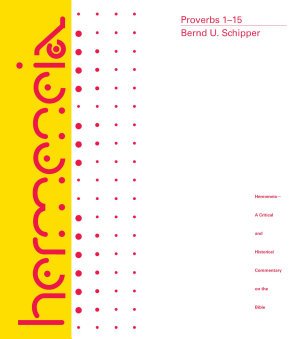Proverbs 1-15
ກ່ຽວກັບປຶ້ມ e-book ນີ້
Scholarly research has long situated the book of Proverbs within ancient Near Eastern literature but declared it to be something "alien" within the Hebrew Bible. In contrast to such a position, the present commentary interprets the book of Proverbs against the background of both ancient Near Eastern literature and the literature of the Hebrew Bible. One aim of the commentary is to discuss new ancient Near Eastern parallels to the book of Proverbs, with a special focus on Egyptian wisdom literature, including Demotic texts from the sixth to fourth centuries BCE.
An equally important aim of this commentary is a detailed exegesis of Proverbs 1-15 as well as an analysis of the overarching strategy of the book of Proverbs as a whole. Taking the prologue of the book in Prov 1:1-7 as a hermeneutical key, the book of Proverbs turns out to be a masterful composition addressing both the beginner and the advanced sage. With its allusions to other biblical texts, including the book of Deuteronomy, the Psalms and the Prophets, the book of Proverbs can be connected to forms of scribal exegesis in Second Temple literature. By using the same scribal techniques as other literati of his time, the scribal sage responsible for some parts of the book as well as its final compilation seeks to provide deeper insight into the complex world of scribal knowledge and sapiential thought.
ກ່ຽວກັບຜູ້ຂຽນ
Bernd U. Schipper received his Dr. theol. from the University of Bonn in 1999 and Dr. phil. in Egyptology from the University of Hamburg in 2004. He held appointments at the University of Bremen, University of Oldenburg, the University of Heidelberg, and Harvard University. Since 2010 he has been professor of Old Testament/Hebrew Bible at the Faculty of Theology of the Humboldt University in Berlin. His research focuses on Wisdom literature, the history and religion of ancient Israel, the cultural contacts between Israel and Egypt, and the 'Judean-Aramaic' community on Elephantine. His publications include Geschichte Israels in der Antike (2018).




